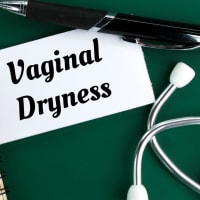What is the best contraceptive method?
Contraceptive methods can be confusing especially in the early days of your marriage. There is a lot of talk and misconceptions about contraceptives. Therefore, I will explain in this article the contraception options available for women during different stages in their lives, to help you choose the right one for you.


Best contraceptive before your first pregnancy
If you and your husband agreed on delaying having children for a while, you can choose one of the following methods of contraception:
- Knowing your ovulation days
In case of a regular period that reoccurs, for example, every 28 days, this means ovulation starts on day 14, pregnancy can be avoided if you don’t have intercourse three days before and after ovulation. However, this is not effective with irregular periods, as it would be hard to track ovulation days unless you use an ovulation test that can give you an approximate ovulation day. It is also noteworthy that condoms can be 99% a contraceptive if used all the time.
- Coitus interruptus
Or withdrawal, which is basically when the man ejaculates outside the vagina. But this method does not guarantee contraception, as the pre-ejaculation might contain sperms who can cause pregnancy.
- Condoms
Condoms can be effective if used during every intercourse, however not 100%. Condoms might break or even leak sperm.
- Contraceptive pills
The pill can be effective when taken according to medical advice after undergoing a thorough medical evaluation before marriage. It is recommended to consult your doctor if you want to use the pill before your first pregnancy.
Best contraceptive after your first baby
- Intra Uterine Devices (IUD)
There are several options available for this method such as the copper IUD, and the hormonal IUD. The IUD is inserted under ultrasound guidance by an OBGYN in a clinic.
- The Contraceptive implant
This is a hormonal implant that is placed under the skin that can adjust the hormones in your body and prevent pregnancy. It is usually good for 3 to 10 years.
- Contraceptive pills
There are different types of contraceptive pills, your doctor will prescribe the best type according to your health and family profile. For example, if you are breastfeeding the best type of pills are the minipills which, unlike the combined pill contain one single hormone. These pills don’t affect the milk supply.
The best contraception method after a c-section
There is no difference between the contraceptives used after a vaginal or a cesarian delivery. The best option is the one you are most comfortable with and that is supported by your doctor.
The best contraceptive for breastfeeding moms
- Breastfeeding itself can be a contraceptive in case the baby is breastfeeding exclusively. This can elevate the prolactin hormone that stops ovulation and periods. But this is not a completely reliable option especially after the baby starts eating solids.
- Condoms if used properly and at every intercourse.
- It is recommended not to take hormonal contraceptives while breastfeeding until you consult a doctor, who can prescribe the minipill that won’t affect your milk supply.
Irreversible contraception methods
These methods can’t be reversed they act as permanent contraceptives. They are medical surgeries that are done under certain circumstances.
- Tubal ligation
This permanent female contraception means cutting and tying the fallopian tubes. This procedure prevents an egg from traveling from the ovaries through the fallopian tubes and blocks sperm from traveling up the fallopian tubes to the egg.
- Vasectomy
The only available male birth control, that cuts the supply of sperm to semen. It's done by cutting and sealing the tubes that carry sperm.
*It is noteworthy that these methods are only available for certain medical conditions and after getting the needed legal and religious approvals.
Also check out Intercourse postpartum: all you need to know






